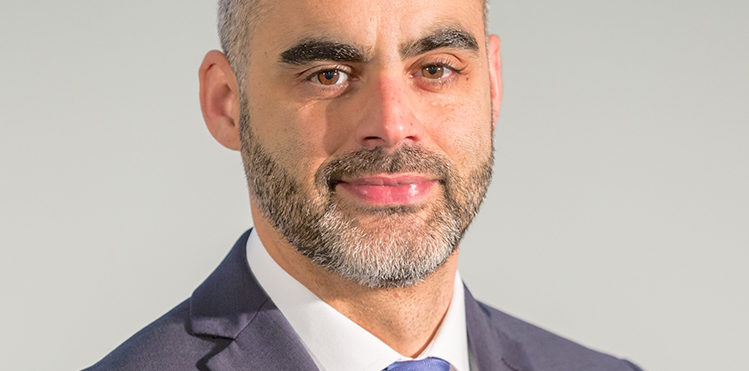Aviation is a strategically important sector making a vital contribution to Europe’s overall economy and employment. Here, key stakeholders from across the industry share their thoughts on the impact of COVID-19 and the recovery actions needed. Interviews by Ross Falconer
Thomas Reynaert, Managing Director, Airlines for Europe (A4E)

Thomas Reynaert, Managing Director, Airlines for Europe (A4E)
“It’s an unprecedented crisis that in many ways has shaken our industry to its core. Thankfully, travel restrictions are now lifting across Europe, and airlines are restarting their operations from virtually zero. Traffic among A4E carriers in June 2020 was down 89% compared to 2019. Although evidence points to a gradual recovery, the outlook remains uncertain: current and future demand is difficult to predict, bookings are down 82% YoY and passengers are booking closer to their departure date. As a result, airlines remain highly vulnerable to new pandemic-related developments.”
“We know that 50% of passengers may wait more than six months before travelling again. Uncertainty about travel restrictions, quarantines, a second wave, etc, will continue to affect consumer demand. Passenger load factors will likely remain below the average break-even level of 75-80% in the foreseeable future. Mandatory health requirements may also affect available airport capacity.”
“A crisis like this requires constant communication with all of your stakeholders and intense collaboration on all levels to be effective. There are a handful of urgent policy measures which A4E is actively working on. An extension of the waiver of the 80/20 slots use into the winter season is one of them. The waiver of this rule during the last months gave our industry the flexibility to respond to the collapse in passenger demand and allowed airlines to avoid flying almost empty aircraft to secure slot positions. Everyone accepts that airlines will operate a much-reduced flying programme this winter. There are no signs that travel will resume quickly and no visibility on future demand. This winter season will be more challenging than most, as European airlines grapple with estimated losses of €19 billion in 2020 (out of €82 billion globally). Airlines usually make most of their annual profits during the summer season. Extending the slots waiver would allow airlines to match capacity and frequency of operations to actual demand, and in our view makes the best use of available infrastructure in these unprecedented circumstances.”
“Another measure would be the urgent revision of Reg. 261 on air passenger rights. We had hoped the Commission would have acted on the difficulties caused by the seven-day timeframe for cash reimbursements at the height of the crisis. It is now imperative that the pending revision of this file moves forward without delay. Consumers will benefit from greater legal clarity and a more balanced framework will support airlines’ recovery.”
“The crisis still requires urgent regulatory measures that can help boost the competitiveness and sustainability of our sector during this challenging recovery phase. Most European airlines were successful before the crisis began. With the right measures in place – and support from EU leaders – airlines can start to rebuild, and recover.”
Eamonn Brennan, Director General, EUROCONTROL

Eamonn Brennan, Director General, EUROCONTROL
“Traffic was down by 89% in April 2020, and by 86% in May, and yet EUROCONTROL has still continued to operate. Our income comes from route charges and much of our costs are fixed so, like everyone else, we have a cash crisis. At the same time, we have to keep ATM running: there are still thousands of flights every day, many carrying important cargo such as medical supplies, and others repatriating European citizens. We have worked with our partners across Europe to make sure that Business Continuity Plans are in place, to harmonise NOTAMs and to ensure that flight crews can still continue to operate.”
“The EUROCONTROL Network Manager has worked very closely with states, airports, air navigation service providers and airlines to produce a Network Recovery Plan. Currently, this estimates that we will have over 10,000 flights a day by early July, compared to just 3,500 flights a day when we were at the worst point in the crisis. The overarching aim is to ensure that as aviation restarts, the whole process can happen as smoothly, efficiently and sustainably as possible.”
“It was really good to see the EASA/ECDC guidelines, as well as the ICAO guidelines, give clarity on what airports and airlines need to do on the ground and onboard aircraft. Where possible, this should be coordinated across Europe in order to make it understandable and provide confidence to passengers and airlines.”
“We need to ensure the industry can recover – and we also need to ensure that if there is a second wave, aviation will be allowed to continue. Of course, that will need to be done in accordance with the EASA/ECDC guidelines, and that is why we are working very closely with the European Commission, EASA and ECAC to ensure as much clarity and consistency as possible for airlines, airports and the travelling public.”
Montserrat Barriga, Director General, European Regions Airline Association (ERA)

Montserrat Barriga, Director General, European Regions Airline Association (ERA)
“ERA member airlines’ figures saw a significant downturn early on, with available seats and movements showing a decline in March of -11% and -13% respectively. By April, this had increased to -73% compared to the same month last year. While EUROCONTROL has reported positive projections that show the start of traffic recovery, we will not be returning to normal operations any time soon.”
“A collaborative and coordinated approach by industry, member states and relevant stakeholders is vital to reconnect and reunite Europe by air travel. Reinstating consumer confidence to fly again is vital to our industry’s recovery process; however, proven scientific mitigations must be employed to enhance this confidence and not undermine it or give rise to heightened anxiety. In addition, all measures must be financially, operationally and logistically viable. I’m hopeful that EASA’s new guidelines will provide this much needed coordination among the industry and allow us to return to operation in a safe and aligned manner.”
“On state aid, we think that the EU Commission must only approve selective support measures for large companies if the grant of state aid does not distort competition in the internal market in line with Article 107 of the Treaty of the Functioning of the EU. We urge national governments in the EU to attach strict conditions to any selective support packages on the basis of the principles of equal opportunities and non-discrimination.”
“Equally, ERA has continued to advocate temporary relief measures to be implemented for Regulation EU261, allowing delayed refunds to passengers for up to 12 months or refundable vouchers instead of immediate cash refunds.”
Julie Lassaigne, Secretary General, European Travel Retail Confederation (ETRC)

Julie Lassaigne, Secretary General, European Travel Retail Confederation (ETRC)
“The Duty Free & Travel Retail (DF&TR) sector has been severely impacted by COVID-19. The imposition of travel restrictions across EU Member States and beyond has led to significant drops in passenger numbers, resulting in dramatically lower turnover for travel retailers and lost sales for suppliers operating in this channel.”
“The next challenge is resuming operations and trying to adapt to a new normal. Restart of air travel doesn’t mean recovery, and local/national authorities need to understand that further support is needed.”
“The impact of COVID-19 has been felt by all players in the air travel value chain and to efficiently restart travel and support the regrowth of European economies, all actors need to be taken into account in recovery support plans. ETRC has sent several letters, some jointly with ACI EUROPE, to EU and national authorities outlining the impact of COVID-19, ensuring the consequences of the crisis and importance of non-aeronautical revenues were understood.”
“In late-April, ETRC released Best Practice Guidelines on practical measures necessary to reopen DF&TR shops in the wake of the COVID-19 outbreak. ETRC also contributed to the ‘EASA and ECDC Operational Guidelines for the management of air passengers and aviation personnel in relation to the COVID-19 pandemic’.”
“ETRC has welcomed efforts from the European Commission and European governments to protect employment. Emergency support schemes are vital and need to be extended and apply to the different stakeholders.”
“COVID-19 should provide an opportunity to agree on ambitious strategies with medium- and long-term effects to revitalise the industry in a sustainable way.”
Eduardo Santander, Executive Director, European Travel Commission

Eduardo Santander, Executive Director, European Travel Commission
“The COVID-19 outbreak and resulting lockdown measures have had a severe impact on the European tourism sector. The latest OECD forecast indicates that the implied shock could amount to a 60-80% decline in the international tourism economy in 2020. While we expect recovery in 2021, it will take a further two years at least for the world tourism economy to return to 2019 levels.”
“We have been working very closely with the European Commission and other stakeholders to mitigate the immediate effects of the crisis and pave the way towards a swift recovery. In particular, I was participating in high-level virtual meetings with EU Commissioner for Internal Market Thierry Breton, calling on the Commission to invest in brand Europe and a Europe-wide tourism campaign, promoting the force of travel to help local communities and save tourism.”
“We need to adapt to the ‘new normal’ and find smart solutions to restart travel in Europe. If the tourism businesses, which are now surviving only thanks to state aid, manage to resume their activities this summer, we might be able to get back on our feet.”
“We are pleased with the attention that the European Institutions have been dedicating to tourism. The recovery plan presented by the European Commission is a good first step. The Commission’s proposal acknowledges that tourism could see a more than 70% drop in turnover in Q2 2020 and puts the tourism ecosystem on top of the basic investment needs with €161 billion required.”
“We need a direct tourism budget line, now more than ever, to help the recovery of the sector and accelerate the transformation to sustainable, digital and innovative tourism in Europe.”
Emmanuel Mounier, Secretary General, eu travel tech

Emmanuel Mounier, Secretary General, eu travel tech
“As key contributors to the travel and tourism ecosystem, eu travel tech members (global distribution systems, online travel agencies, metasearch and travel management companies) have experienced first-hand the impact of COVID-19.”
“One of the most dire consequences was, undoubtedly, the liquidity crisis that affected all players across the air travel industry. Many of our members have seen a reduction in bookings of 60-90%, while having to cope with refund requests from travellers, creating an unsustainable cash-flow and revenue situation.”
“We need EU policymakers, Member States and industry to work together to find solutions that put travel and tourism at the centre of the recovery plans, stimulate demand and restore consumer confidence. We must work on coordination at EU level and prioritise measures and policies to help reignite the sector. Technology will play a crucial role as an enabler and accelerator of recovery.”
“A driver for recovery will be adequate competition, which is key for consumer access to choice, flexibility and value. eu travel tech members will contribute by operating transparent marketplaces where all players can compete on a level playing field. Our members have also made available a number of support measures to their partners and suppliers to ensure that the whole travel ecosystem is prepared to recover swiftly.”
“The erosion of demand has led to a predicted recovery of the sector by Q2 2021 at the earliest. The European Institutions should instigate initiatives to counter these trends, such as the implementation of time-limited income tax credit for private expenditures by national governments. The creation of EU and/or national marketing funds to support European destinations to progressively attract more visitors is also important.”
Fabio Gamba, Director General, Airport Services Association

Fabio Gamba, Director General, Airport Services Association
“Airport services and airline catering companies are among the hardest hit by the COVID-19 crisis. These are the people who handle your baggage, board your plane and prepare the food for your trip. The safety of passengers and employees remains paramount and will always come first. We have put effective measures in place to protect the health and safety of travellers and our people. Aviation is and remains the safest way to travel.”
“We are engaging with our members. We are also explaining to governments how important ground handling is in terms of making the whole aviation value chain function properly.”
“Collaboration with other industry associations is important and we are working closely with our colleagues in ACI EUROPE and IATA. It is extremely important that we are all in agreement regarding what needs to be done as travel restrictions are lifted. We must ensure there is a common understanding of the role of ground handlers.”
“The COVID-19 crisis has shown that ground handling is so essential to operations in a safe air transport system. If nothing else, this demonstrates in Europe a need for a common standard for ground handling, which is lacking today.”







